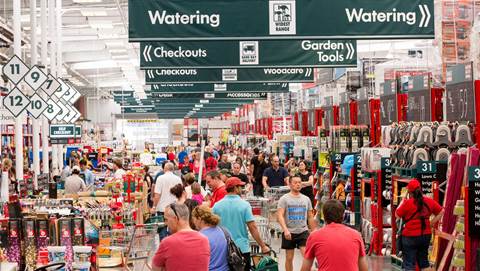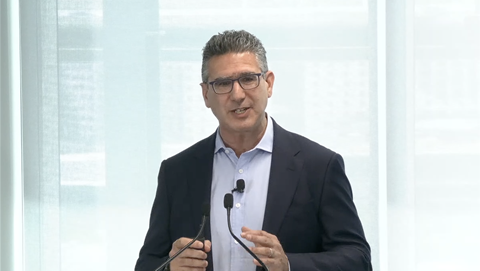Ongoing challenges around digital transformation, supply chain disruptions, and the global shift to sustainable business practices dominated the opening keynotes of SAP’s first large scale Sapphire conference since the pandemic began in early 2020.

Speaking to delegates in the opening session of the event, CEO Christian Klein noted that the life span of Fortune 500 companies continues to decline and he predicted that half will disappear this decade.
He said the most difficult aspect of the transformation being forced upon companies by competitive, technological and regulatory pressures was managing culture change, “… especially when your existing business model is still financially successful.”
And many transformations have yet to pay dividends, with three-quarters of all companies yet to experience concrete benefits from their investments in digital transformation, he suggested.
Adding to the complexity of the business environment, not all of the transformations were carefully planned. Global supply chains for instance have been especially disrupted in recent years, first with COVID and now with the war in Europe.
“75 percent of all companies worldwide are facing supply chain disruptions. Why is that?”
“In the last decade, many parts of our supply chains got outsourced to different suppliers to different companies. With that, we increased the complexity and now we are seeing how fragile our supply chain caused by COVID related lockdown and unforeseen changes in customer demand [is].”
Some might argue that hyper optimised, just-in-time approaches promoted by companies like SAP, or management consultants like McKinsey, with whom the firm announced a new partnership today also contributed to current problems.
After his keynote, Klein told Digital Nation, "This question is not completely answered yet. You cannot just say now I'm moving on globalising my supply chain.
"How on the one hand side can you offset the risk and also go more into instant delivery by actually localising the supply chain, and on the other end, how can I automate my supply chain to offset the cost question.
Klein said there was a trend, especially in the retail industry that supply chains can be more localised. It's a bit different from industry to industry, but we have solutions either way.
During his earlier keynote, however, Klein focussed on other issues.
“Our supply chains lack end to end transparency and as a result, resiliency and [that leads to] our third challenge. We can't act on sustainability without transparency.“
Klein told delegates, “We have to run our enterprises more sustainably. And according to Mckinsey, up to 70 percent of profit can be at risk when a company is not running sustainability.”
He argued that sustainability has become a business imperative. “The green line is as much as important as the top and the bottom line for customers, employees and investors they will follow the enterprises who want sustainable.”
The problem for many companies is that they lack transparency over processes and visibility of the data they need to make decisions.
“We lack the transparency to take action. I’ve always believed that you can't manage what you can't measure. So today, our team is working to show you how we turn these challenges, with our innovations, into significant business opportunities for your company.”
One such innovation is the addition of what SAP calls a Green Ledger into its core financial ERP product, to allow companies to measure their carbon usage.



_(28).jpg&h=140&w=231&c=1&s=0)







 iTnews Benchmark Awards 2026
iTnews Benchmark Awards 2026
 iTnews Executive Retreat - Security Leaders Edition
iTnews Executive Retreat - Security Leaders Edition
 iTnews Cloud Covered Breakfast Summit
iTnews Cloud Covered Breakfast Summit
 The 2026 iAwards
The 2026 iAwards












_(1).jpg&h=140&w=231&c=1&s=0)



